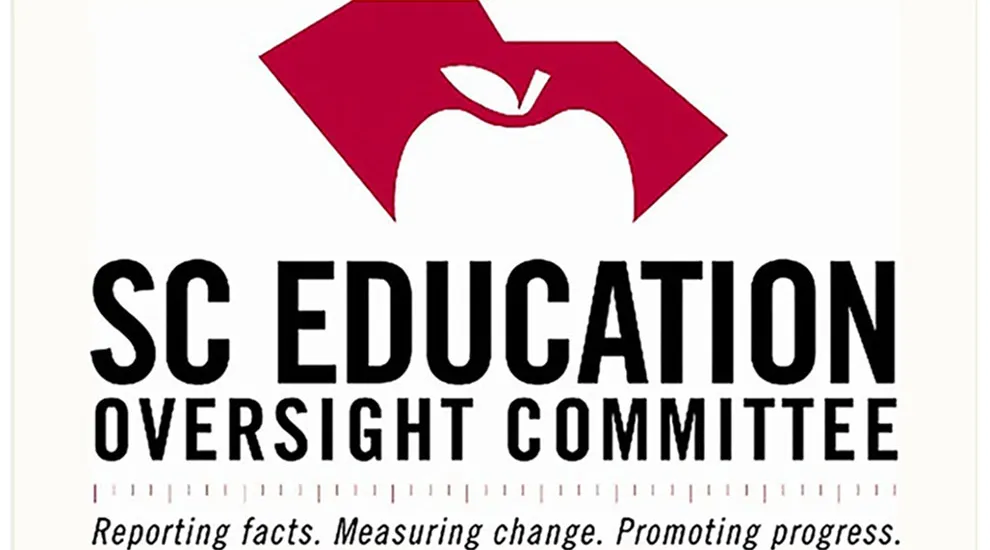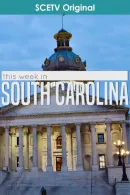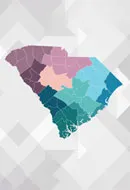
As required by state law, the Education Oversight Committee (EOC) approved budget recommendations for Fiscal Year 2024-25. These recommendations focus on the revenues generated by the one-cent sales tax, the Education Improvement Act. The committee’s recommendations prioritize student learning while seeking to review state-funded teacher recruitment and retention programs.
The committee is recommending that an ad hoc committee be formed in summer 2024 to review the 16 programs currently in place and funded with EIA dollars whose primary focus is teacher recruitment and/or retention. The recommendations, as approved, will be forwarded to the Governor and General Assembly for their consideration in the upcoming budget deliberations.
“Teacher recruitment and retention is the most pressing issue facing public schools across South Carolina, and research is clear that a highly qualified teacher has a large impact on student achievement,” stated Dr. Bob Couch, the chair of the subcommittee that brought forward the recommendations to the full committee. “Currently, the South Carolina General Assembly is funding a number of teacher recruitment and retention programs that are either not providing outcomes or not producing adequate outcomes in the form of teachers.”
Members met throughout the fall, reviewing and hearing comment from programs on budget needs and priorities. In Fiscal Year 2024-25, the penny sales tax is expected to generate an estimated $1.253 billion dollars dedicated solely to public education. This represents an increase of $75 million dollars available to improve the quality of public education.
In its recommendations, the EOC suggested that the $75 million of recurring dollars be allocated to enhancing student learning in STEM and mathematics, teacher recruitment and retention, early childhood, teacher salaries, assessment and learning, and school building safety.
“Our North Star is always what students need in order be successful beyond high school,” stated Couch. “That work starts early with the youngest students.”
A summary of the committee’s budget recommendations for EIA revenues are as follows:
Student Learning in STEM and Mathematics
- An increase in funding of $10 million to programs to identify and support elementary through middle grades schools with one half or more of 5th or 8th grade students scoring at the lowest level on SC READY mathematics. For each school identified, the SC Department of Education (SCDE) would support them through instructional coaching, high quality instructional materials, high quality professional learning, and high dose tutoring.
- Concurring with the SCDE’s request, utilization of $36.9 million to ensure instructional materials for schools and teachers are up to date, with a priority placed on mathematics in elementary and middle schools.
- An allocation of $1.5 million for a partnership between the SCDE and the College Board to improve college- and career-readiness of secondary and middle school students, expanding the access to Pre-Advanced Placement courses across the state.
- An additional $150,000 for a robotics program focused on serving underserved school districts.
Early Childhood
- Allocation of resources totaling $14.1 million to expand state-funded full-day four-year-old kindergarten so more students can access it.
- An increase of $2.9 million to train four-year-old kindergarten teachers and assistants on science-based reading professional learning.
Teacher Recruitment and Retention
- The formation of an ad hoc committee in summer 2024 to review current EIA structures/programs in place in South Carolina whose focus is teacher recruitment and retention. Each program will be reviewed, with a specific eye toward duplication of efforts and return on state investments.
- Allocation of additional monies within EIA to support increasing the individual teacher supply stipend from $350 to $400.
- The support of the SCDE using $10 million to pilot a program recognizing teachers who demonstrate above average year-to-year student growth in core academic areas.
School Building Safety
- Increase in funding of $5 million to develop a statewide mapping system of school buildings to equip first responders for responding to emergency calls to schools.
For a summary of the recommendations and proviso requests for FY 2024-25, click here (pdf).





